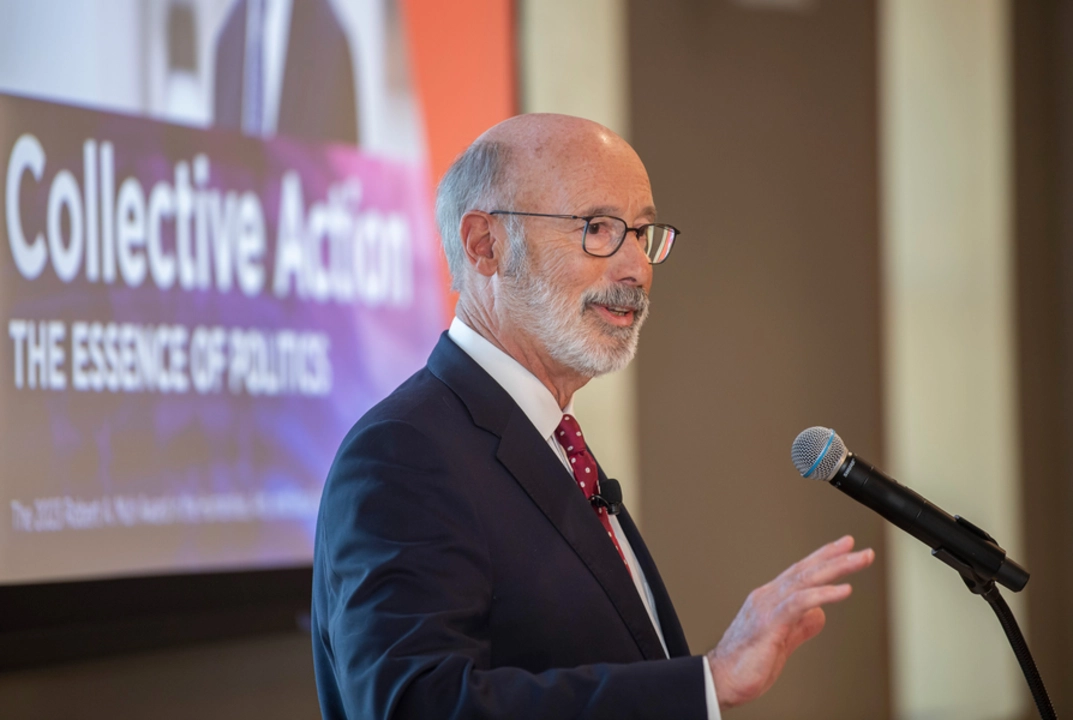Exploring the Origins of the Word 'Technology': A Historical Perspective
The word 'technology' is ubiquitous in our day-to-day lives, but where did this word come from and when did it start to become widely used? This article will explore the history of technology and trace the origins of the word itself.
The term 'technology' was first used in the early 19th century, when it was coined by the French philosopher and author Auguste Comte, who defined it as “the science of industrial application.” Comte was referring to the inventions and innovations of the Industrial Revolution, which had begun in the late 18th century in England. By the mid-19th century, the word had been adopted by scientists and engineers in the United States and Europe and was used to refer to the application of science and engineering to the development of tools and machines.
The word 'technology' was also used in the late 19th century to refer to the application of science to everyday life, such as in the development of telephones, typewriters, and automobiles. The term was used by the Wright brothers when they spoke of their work on the first powered airplane as “the technology of flight.” In the 20th century, the word was used to refer to the development of computers and the internet, and in the 21st century, it has come to encompass the use of artificial intelligence and robotics.
The word 'technology' has come to have a much broader meaning in recent years. It is now used to refer to any kind of digital technology, from smartphones and tablets to virtual reality headsets and autonomous vehicles. It is also used to refer to the application of science and engineering to a wide range of fields, from medicine and biology to sociology and economics.
The word 'technology' has become so common in the modern world that it is now used as an umbrella term that encompasses the various tools and machines that are used to make our lives easier, faster, and more efficient. It is a word that has been used for centuries to describe the application of science and engineering to everyday life, and it has become even more relevant in an ever-evolving digital world.
How Technology Has Evolved Over Time: A Look at the Etymology of the Word
The term “technology” has been around for centuries, but only recently did it come into common use. To understand the evolution of the word, it’s important to take a look at its etymology.
The word “technology” has its roots in the Greek term “techne,” which literally translates to “craft” or “skill.” In Ancient Greece, techne referred to the knowledge and skills of craftspeople, such as blacksmiths, potters, and carpenters. Over the centuries, the definition of techne evolved to encompass any and all forms of knowledge related to the practical application of science and engineering.
In the 17th century, the term “technology” first appeared in print. It was used to refer to the application of scientific knowledge to practical problems. By the 19th century, the term had become more widely used, referring to the development of machines and other tools that helped to make work easier and more efficient.
In the 20th century, technology underwent a dramatic transformation. The invention of the computer, the internet, and the mobile phone revolutionized communication and the way people lived and worked. As technology advanced, it became increasingly easy to access information and communicate with people around the world.
Today, the term “technology” is used to refer to a broad range of topics, from computers and software to biotechnology, nanotechnology, and artificial intelligence. Technology is no longer just a tool to make work easier, but a way of life. It is used to create new products and services, to improve existing ones, and to solve global problems.
The evolution of the word “technology” is a reflection of the dramatic changes that have taken place in the way people live and work. It is a reminder of the power of science and engineering to shape our lives and our world.
The Rise of Technology: A Timeline of the Word's Popularity
The word technology has been in use for centuries, but it wasn't until the 1950s that it began to gain traction in the public consciousness. In the decades that followed, technology has come to dominate our lives, from the way we communicate to the way we work and play. But what exactly is technology, and when did it become popular? Here's a look at the rise of the word technology, and how it has become the most popular word of the 21st century.
The Early Days of Technology
The word technology has ancient roots, with the first recorded use of the word in 1615. However, at this time, technology was used to describe the study of mechanics and machines, rather than the way we use it today. It wasn't until the 1950s and 60s that the word technology began to be used to describe the products of scientific progress, and it wasn't until the 1970s that it began to be used more broadly to refer to the range of products and services that have come to define our lives.
The Popularity of Technology
The popularity of the word technology exploded in the 1980s, as computers and other digital technologies began to permeate our lives. This was the decade that saw the introduction of the personal computer, and the internet. It was also the decade that saw the rise of the mobile phone, and the beginnings of the digital revolution. As these technologies became more and more popular, so too did the word technology, which was used to describe the products of this revolution.
The Digital Revolution
The digital revolution of the 1990s and 2000s saw the word technology become ubiquitous. As the internet spread across the globe, so too did the use of the word technology. By the early 2000s, the term technology had become a part of everyday language, used to describe the range of digital products and services that had become a part of our lives.
The 21st Century
Today, technology has become a part of our daily lives. We use it to communicate, to work, to play, and to stay connected. Technology has become so pervasive that it is now the most popular word in the English language, with over 8 billion search results on Google alone. Technology has become the defining word of the 21st century, and its popularity is only set to continue.
Examining the Impact of Technology on Society: A Look at the Use of the Word
The word “technology” is one of the most widely used words in modern society, but it is often used without much thought. To gain a better understanding of the impact of technology on our lives, it is important to look at the history of the word and how it has been used over the years.
The term “technology” was first used in the early 19th century, when it was used to describe the “application of scientific knowledge for practical purposes.” The term was initially used in the context of engineering and manufacturing, but by the late 19th century, the term had become more widely used to describe any type of science-based innovation. Since then, the term has been used to describe a wide range of topics, from computing to biotechnology.
In recent years, the use of the word “technology” has expanded even further. It is now used to refer to a variety of different concepts, such as artificial intelligence, robotics, virtual reality, and more. Technology is being used in a variety of different ways, from medical and educational applications to entertainment and gaming.
The impact of technology on society is undeniable. Technology has revolutionized the way we live, work, and play. It has changed the way we communicate and interact, and it has enabled us to access information and resources like never before. Technology has also had a major impact on the economy, with many industries relying heavily on technology for production and distribution.
Technology has also had a major impact on the environment, with many of the advancements in technology leading to increased emissions of carbon dioxide and other harmful pollutants. Technology has also had a major impact on our privacy, with many technologies designed to collect and use personal data without the user’s consent.
Technology is a powerful force in modern society, and it has had a major impact on the way we live our lives. With the rapid advancement of technology, it is important to understand the history of the word and the implications it has for our lives today. It is clear that technology has had a profound impact on society, both positively and negatively, and it is important to be aware of the potential risks and benefits associated with its use.
How the Word 'Technology' Has Changed the Way We Live and Work
It's hard to believe that the word 'technology' has only been around for a few decades. The term 'technology' first appeared in the Oxford English Dictionary in the early 20th century, but it wasn't until the middle of the century that it caught on in the mainstream. Since then, the term has evolved to encompass a wide range of activities, from engineering and computing to medical science and artificial intelligence.
It's no exaggeration to say that technology has revolutionized the way we live and work. Technology has enabled us to do things that were previously impossible or incredibly difficult. We can now communicate with people across the world in an instant, access information from anywhere, and use technology to automate mundane tasks. These advances in technology have allowed us to work more productively, access a wider range of resources, and build new industries.
Technology has also changed the way we interact with each other. Social media has given us a platform to connect with people from all over the world, while the internet has enabled us to find information and resources quickly and easily. This has helped us to become more informed and knowledgeable, as well as given us the opportunity to take part in conversations on a global scale.
Technology has also made our lives safer and healthier. Advances in medical technology have allowed us to detect illnesses earlier, monitor our health more closely, and develop treatments for illnesses that were once considered untreatable. Technology has also improved safety in the workplace, as well as given us access to more efficient transportation, energy, and communication systems.
The word 'technology' has come to signify so much more than just computers and gadgets. Technology has transformed the way we live, work, and interact with each other. It has given us access to information and resources that were previously inaccessible and provided us with the tools to create a better world. The word 'technology' has revolutionized the way we live, and it will continue to do so for years to come.

